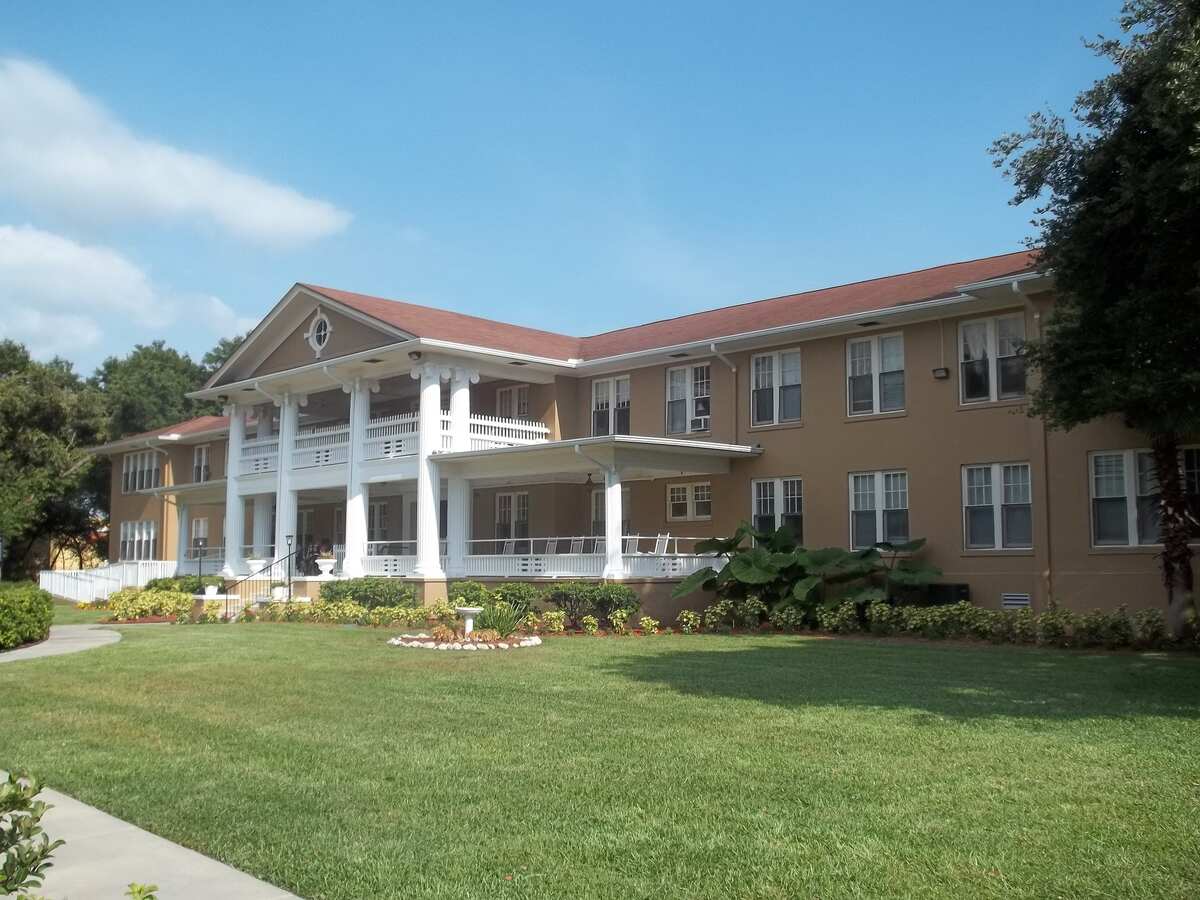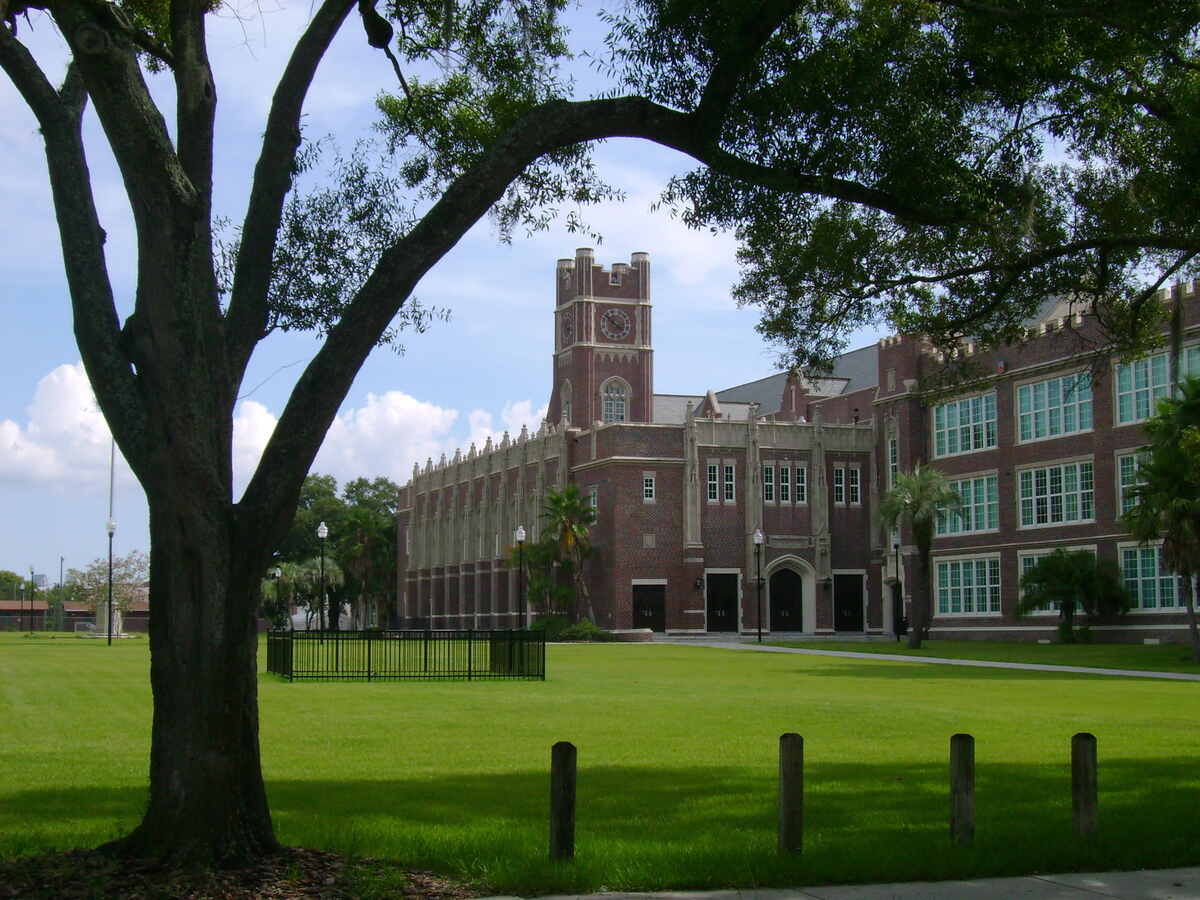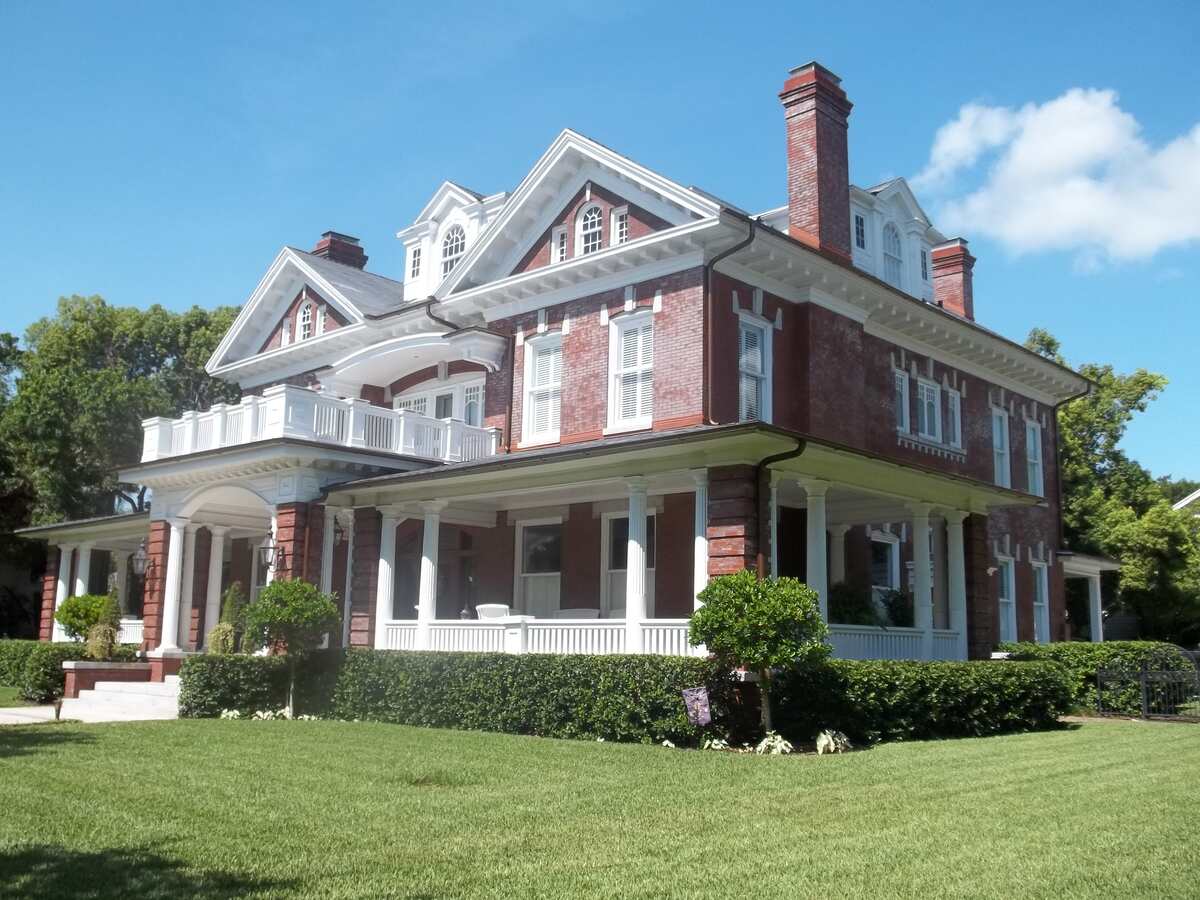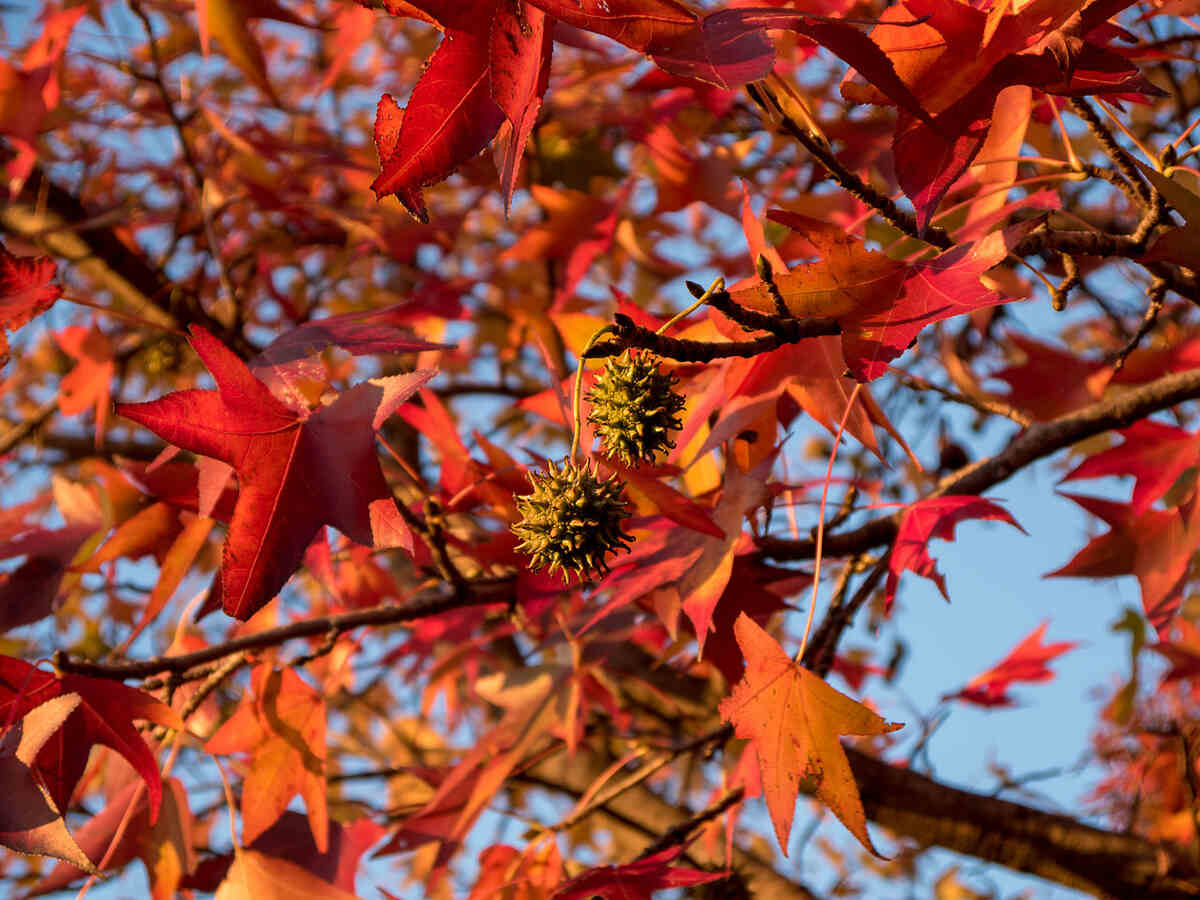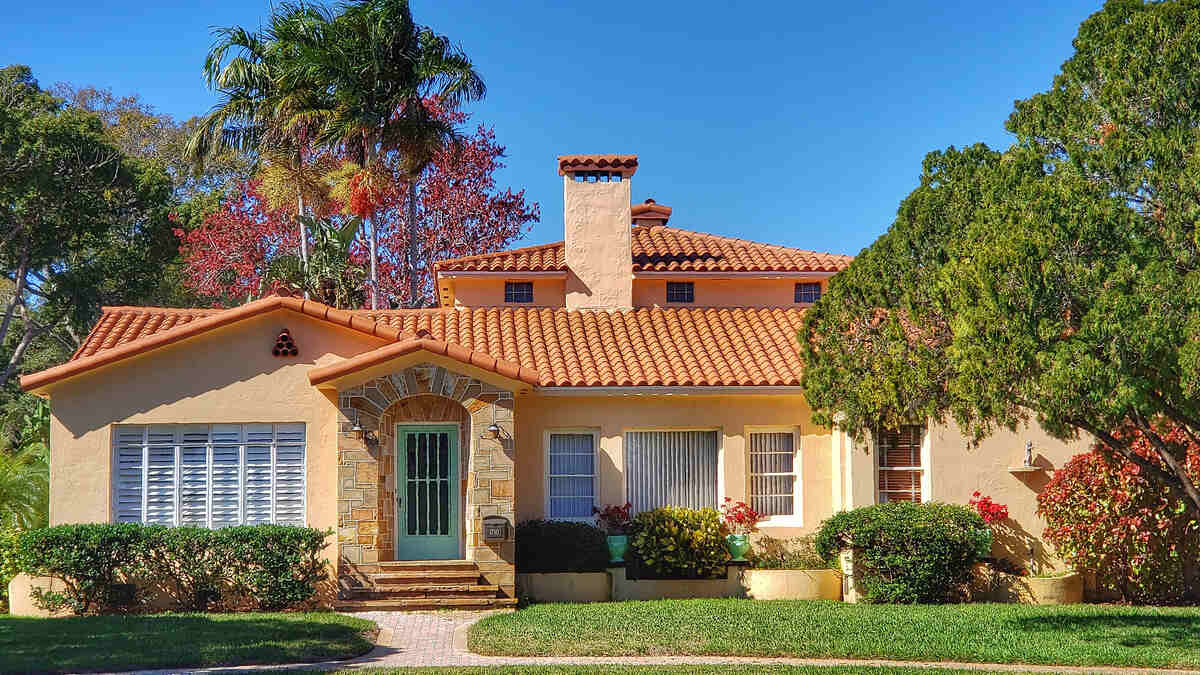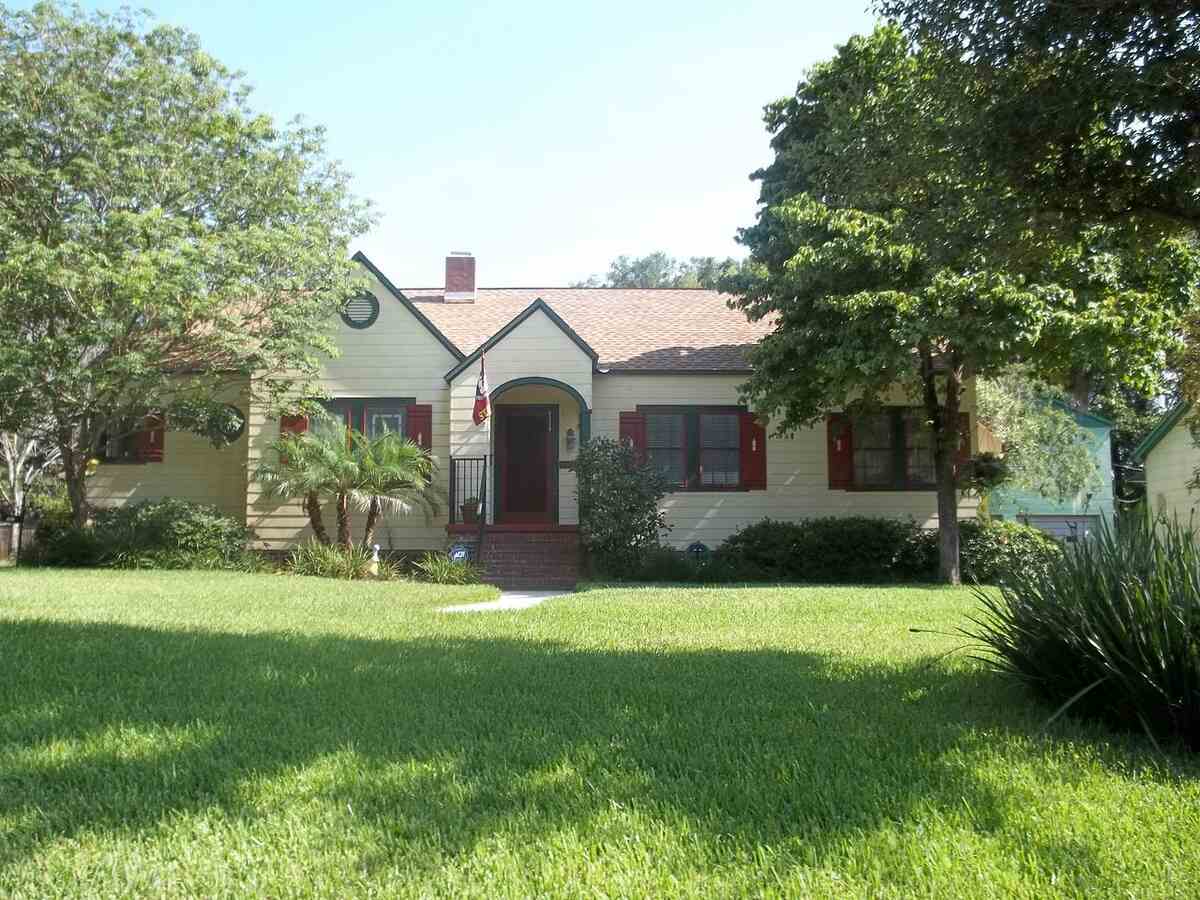
Tampa Bay springs are mild, dry, and always come on time. But they’re short. You only have March and April to prepare your lawn for the hot and humid summer that awaits. Make the most of what little time you have to ensure beautiful and healthy grass around your home.
Here are 10 practical spring lawn care tips for Tampa-area yards to help you start the season right.
- 1. Prepare Your Mower for the New Season
- 2. Start Mowing From Mid-March
- 3. Calibrate the Irrigation System for Tampa’s Weather
- 4. Test the Soil
- 5. Fertilize According to Local Rules and Regulations
- 6. Aerate the Lawn
- 7. Scoop Up Tampa Lawn Weeds
- 8. Look Out for Local Lawn Pests
- 9. Prevent Lawn Disease
- 10. Overseed for a Dense Lawn
- FAQ About Spring Lawn Care in Tampa Bay
- Hire a Lawn Care Pro
1. Prepare Your Mower for the New Season
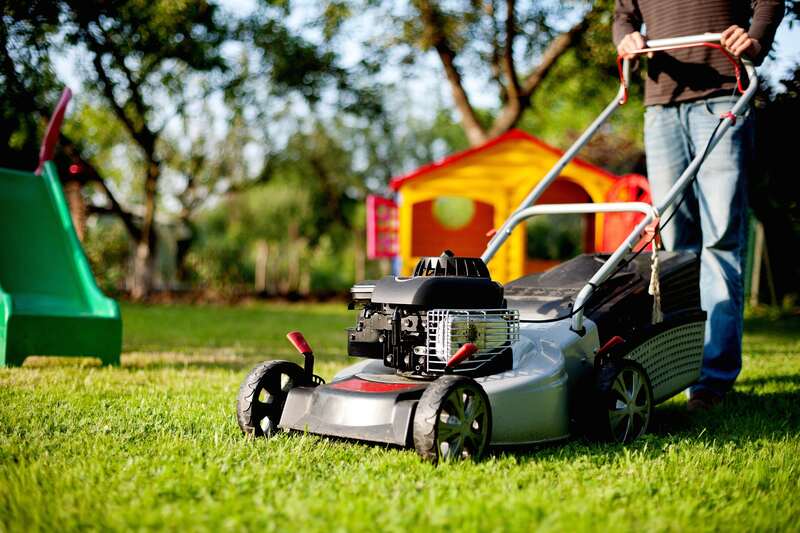
Come March, local temperatures rise above 70 degrees. It’s the best time for warm-season grasses to end their semi-dormancy and start the growing season. You’re about to start mowing again at the regular once-a-week pace. Is your mower ready?
To ensure you trim your grass quickly and smoothly, do a quick checkup:
- Clean or replace the air filter.
- Change the oil.
- Replace the mower blades if they have extensive nicks, or sharpen them if they look OK.
- Lubricate moving parts.
- Get rid of any grass clippings and debris on your mower.
- Clean debris and dust on its casing and make it look sharp.
Pro Tip: To be safe, remove the spark plug while maintaining your lawn mower.
Shop new lawn mowers here:
2. Start Mowing From Mid-March
Proper mowing makes the lawn thicker and less vulnerable to weeds. It’s also decisive for grass health along with fertilization and watering. To ensure you won’t damage the blades of grass by cutting too early in the spring, let the lawn look a little overgrown before the first mow.
Mow height and frequency depend on the type of grass you have on your lawn.
Here are the recommendations for the most common grasses grown in the Tampa Bay area:
| Turfgrass Species | Optimal Mowing Height (inches) | Mowing Frequency (days) |
| Bahiagrass | 3.0 – 4.0 | 7 – 17 |
| Bermudagrass | 0.5 – 1.5 | 3 – 5 |
| Carpetgrass | 1.0 – 2.0 | 10 – 14 |
| Centipedegrass | 1.0 – 2.0 | 10 – 14 |
| St. Augustinegrass | 3.5 – 4.0 | 5 – 14 |
| Zoysiagrass | 1.0 – 2.0 | 10 – 14 |
| Seashore paspalum | 1.0 – 2.0 | 5 – 7 |
| Buffalograss | 2.0 – 3.0 | 7 – 10 |
Pro Tip: Always cut ⅓ of grass height or less to allow quick healing and reduce vulnerability to diseases and heat. Leave clippings on the lawn as natural fertilizer or spread them as mulch on flower beds.
3. Calibrate the Irrigation System for Tampa’s Weather
Spring is an excellent time to ensure the sprinkler system functions correctly and calibrate it according to the weather and watering regulations. The Tampa Bay has water restrictions all year round, limiting lawn irrigation to twice per week. Find more details about local water restrictions and schedule for your county and city on the municipality websites:
- Hillsborough County
- Pasco County
- Pinellas County
- City of Tampa
- City of St. Petersburg
- City of Clearwater
To water your Tampa Bay area lawn correctly, ensure 1 inch of water per week, including rainfall. Since spring is a dry season in Champa Bay, you’ll need to provide most of it through irrigation, especially in April.
Shop new sprinkler systems here:
4. Test the Soil
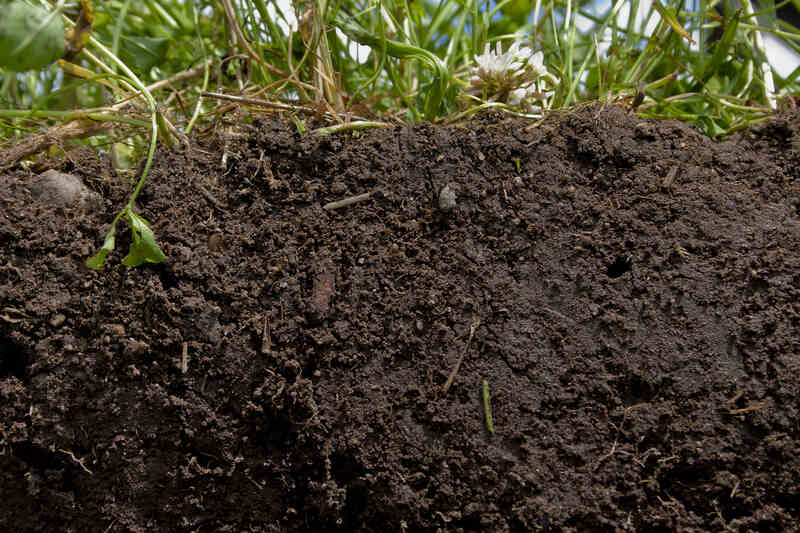
Most turf grasses thrive in slightly acidic soil with a pH of 6.5 to 7. Suitable pH helps the roots absorb nutrients more efficiently. It also limits thatch buildup, keeping moisture in check and preventing fungal infections.
The Tampa Bay area has mostly Myakka soil, the official Florida soil, which is sandy, wet, and acidic, but lawn treatments and other factors can modify its properties.
To ensure the soil in your yard has a proper pH and is rich in nutrients, test it. You can find DIY soil test kits in local home improvement stores. You can also send samples to be tested at the local County Extension Office.
Treat soil with a pH under 6.5 with lime. If the pH is over 7, add sulfur. The test also tells you the soil composition so you can add a proper fertilizer to correct deficiencies.
Shop DIY soil test kits here:
5. Fertilize According to Local Rules and Regulations
Balanced lawn fertilization is essential to keep the grass healthy and protect the environment from toxic leaching. Tampa area soil has a sandy texture prone to leaching excess nitrogen and phosphorus and contaminating the groundwater.
Use a soil test to apply the proper nutrients and prevent over-fertilization.
Here are three other tips that can help you ensure you use the right lawn fertilizer:
- Use products labeled for urban turf. Ensure it’s the right one for the type of grass you have on your lawn.
- Choose a low-phosphorus formula. Soil in the Big Guava is already rich enough in this nutrient.
- Go for a slow-release product that provides nitrogen at a low rate. This allows the grass to absorb it as it grows and prevents nitrogen from entering waterways, which can lead to harmful algae blooms.
6. Aerate the Lawn
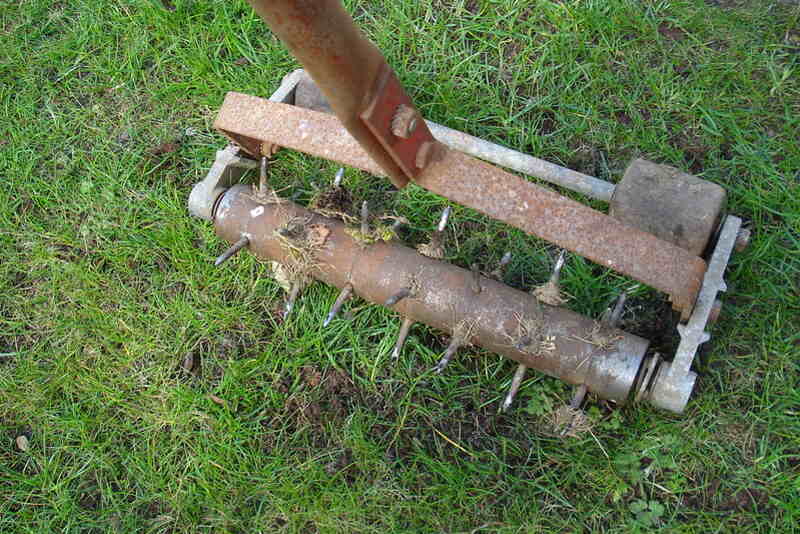
To improve water, oxygen, and nutrient absorption, aerate your Tampa Bay area lawn once a year. A good time to do it is late spring when your warm-season grasses are just reaching their peak growing season.
Core aeration creates tiny holes in the soil, allowing air, water, and fertilizers to travel more quickly toward the roots. It also prevents runoff and water pooling and is an effective strategy for keeping a hurricane-resistant lawn.
7. Scoop Up Tampa Lawn Weeds
By March and April, winter annual weeds have grown enough to be visible in your lawn. Some even have flowers and are prepared to seed. It’s an excellent time to get rid of them.
Pull the weeds out by hand if there are just a few. With a severe weed presence, consider applying a post-emergent herbicide. Spread it in early spring. It’s more effective on younger plants.
Common winter annual plants to look for in Tampa area lawns are:
- Annual bluegrass
- Chickweed
- Henbit
- Hop clover
- Wild geranium
Start an efficient weed control routine in early spring by applying a pre-emergent herbicide. This will keep summer annual weeds from sprouting, such as:
- Crabgrass
- Goosegrass
- Spurge
- Florida pusley
- Doveweed
8. Look Out for Local Lawn Pests
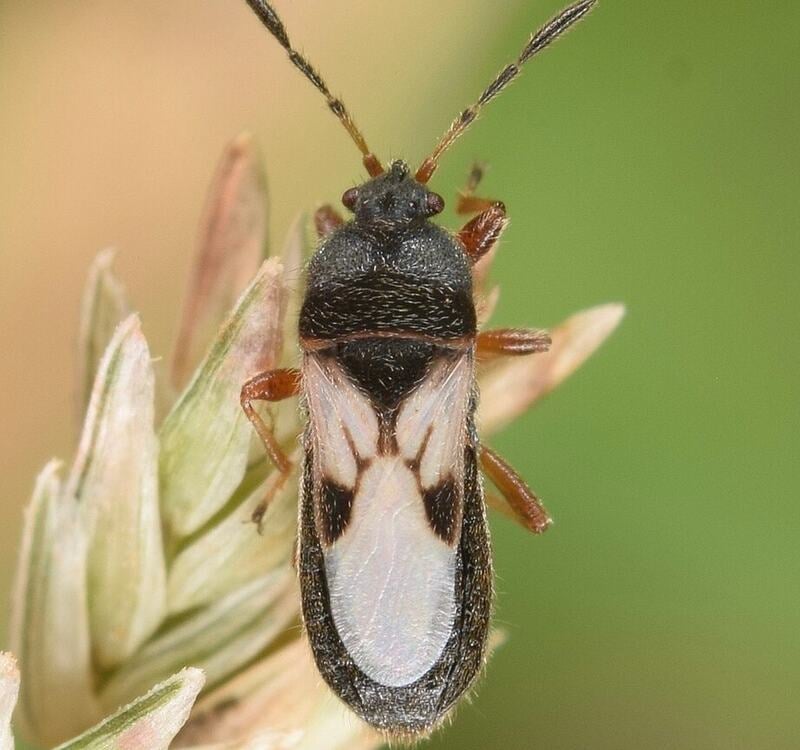
Keeping a beautiful, healthy lawn where you can relax with your family also involves protecting it from local pests. Some of the most aggressive lawn pests to watch for in Tampa in the spring are the following:
- Chinch bugs – ⅕-inch long bugs with black bodies and white wings. They prefer St. Augustine turf and attack mainly near driveways, sideways, and other warm surfaces. Chinch bugs feed on the sap from grasses and slowly kill the grass.
- Mole crickets – They feed on leaves, shoots, and roots. Mole crickets tunnel below ground, slowly eroding the root systems of infested lawns.
- Armyworms – A type of grub that feeds on roots. Armyworms attack in large groups, damaging entire lawns in just a few days.
- White grubs – Larvae of June Beetles, white grubs feed on grass roots, killing the turfgrass and turning the lawn brown.
- Sod webworms – A larval root-feeder, sod webworms look like fuzzy brown or grey caterpillars with dark spots. When they are present on your Florida lawn, you’ll start to notice brown or bare patches showing up in your grass.
To prevent pests in your lawn:
- Do a thorough spring lawn cleaning – Remove branches, twigs, animal residues, and any other debris that might become shelter or food for pests.
- Dethatch the lawn – A thick thatch layer attracts pests. It can also foster mildew and fungus growth in the moist Cigar City climate. Dethatch at least once a year to keep your lawn healthy.
- Inspect the lawn for signs of pest presence – Lawn pest management is easier if done timely. Call a pest control professional in the Tampa Bay area if you notice underground tunneling, thinned grass, plants that pull out easily from the ground, and brown patches.
9. Prevent Lawn Disease
Whether living in Tampa, Clearwater, or St. Petersburg, spring lawn maintenance means you have some nasty grass diseases to watch for. Some of the most common are:
- Brown Patch Fungus (November to May) is activated by excessive soil humidity while temperatures are under 80 degrees. Infected grass patches turn yellow, reddish-brown, brown, or straw-colored and eventually die.
- Gray Leaf Spot (late spring to early fall) primarily affects St. Augustinegrass. It’s triggered by prolonged rainfall periods and compacted soil with too much nitrogen. Gray Leaf Spot creates small olive-green to brown pinhead-sized spots that develop in circular or oblong tan to brown spots with dark-brown margins.
- Pythium Root Rot (all year round) is activated by wet soil, poor drainage, or poor irrigation. Pythium Root Rot seldom kills the grass. The lawn usually gets thinner and turns yellow, light green, or brown.
Some diseases can spread fast if neglected. If you see signs of infection, hire a professional lawn care service to apply the proper treatments and keep your lawn green and lush.
10. Overseed for a Dense Lawn
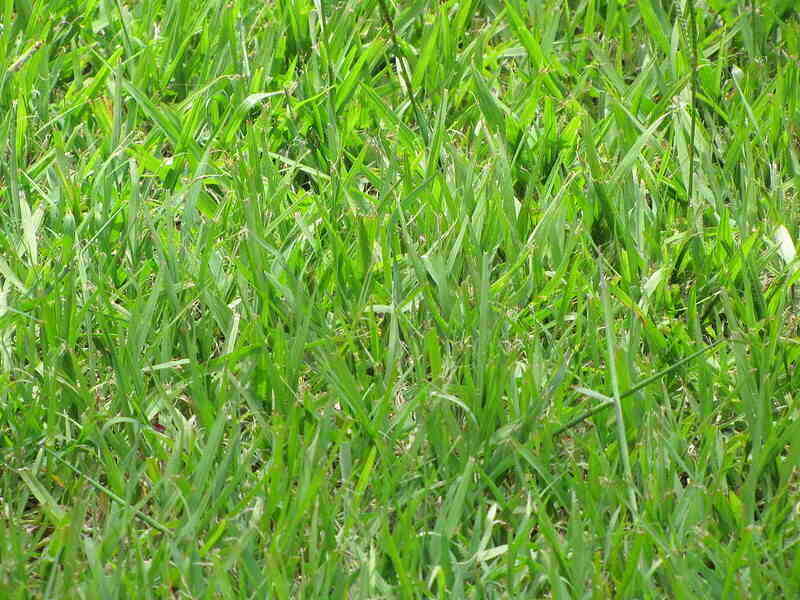
Overseeding is a great way to improve grass density on existing lawns. April to May is the best time to seed warm-season grasses in the Tampa Bay area. It gives the new growth an entire season to develop before meeting the cold season.
If shade trees are planted around your property with thinned grass under their canopy, consider replacing turf with native ground covers or spreading mulch near their trunks. Most warm-season grasses don’t thrive in partial shade.
FAQ About Spring Lawn Care in Tampa Bay
Apply lawn fertilizer with nitrogen in mid-April for greener grass, then make the other two applications in summer and early fall. Since warm-season grasses start to slow their growth in late fall, avoid adding fertilizers later than October.
Spring is the best time to add an excellent fertilizer to feed the grass while it starts to grow. Also, apply a pre-emergent herbicide to prevent summer weeds, such as crabgrass and goosegrass.
According to the irrigation regulations in place in the Tampa Bay area, you can water your lawn up to twice per week. To encourage your grass to develop deep, healthy roots, keep it at one watering per week, but make it thorough.
Hire a Lawn Care Pro
With temperatures ranging from 60 to 80 degrees, spring in the Tampa Bay area is friendly, comfortable, and cheerful. Perfect for new growth, fresh landscaping ideas, and preparing your yard for another beautiful season.
Mowing, watering, fertilizing, aeration, dethatching, and preventing weeds and pests are just part of the spring lawn care tasks for a homeowner in the Tampa Bay area. Don’t have enough time to do it all DIY? No worries! Hire a lawn care professional from the Tampa Bay area and get your grass ready for the summer.
Oh and what’s next on your lawn care calendar? See Summer Lawn Care Tips for Tampa Homeowners.
LawnStarter participates in the Amazon Services LLC Associates Program, an affiliate advertising program. LawnStarter earns revenue from products promoted in this article.
Main Image Credit: Tampa FL / Ebyabe / Wikimedia Commons / CC BY-SA 3.0
